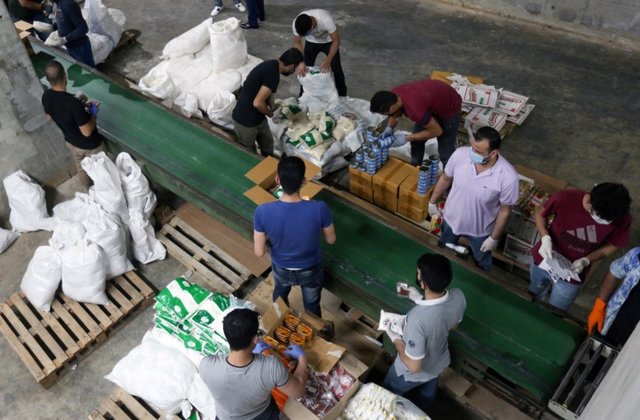BEIRUT – As Lebanon’s debilitating economic crisis drags on, Lebanese whose living standards have plunged are relying more and more on a growing support system of charities and private initiatives to fend off hunger.

The financial crisis that came to a head last year has inflicted mounting hardship on Lebanese who have seen prices soar, jobs disappear and the value of the pound currency sink – and that was before the added blow of the coronavirus pandemic.
As Beirut negotiates an International Monetary Fund programme it is counting on to spark a recovery, an array of charitable initiatives have scrambled to fill a void left by the heavily indebted state.
Last month nearly 100 non-governmental organisations jointly began what they called one of the largest food campaigns ever in the country, gathering donations from expatriates to provide a month’s worth of food for 50,000 families.
“We will keep trying as much as we can to collect money and keep distributing (food). But we can’t feed 1.2 million or 2 million Lebanese…This is a state’s work and we are not a state,” said Maya Ibrahimchah, president of Beit El Baraka, one of the organisations involved.
The food drives have spawned scenes that would have seemed unimaginable just a year ago in the Mediterranean country of 6 million people, where banking and tourism once brought relative prosperity.
On Sunday, needy Lebanese queued on Beirut’s seafront across from luxury car dealerships and designer shops to take home rations of potatoes, onions and bread, part of a separate initiative run by businessman Fadi Khairo.
“Families across Lebanon are appealing to us to stand by their side during this crisis so they can feed their families,” Khairo said as car trunks were loaded with chicken, dairy produce, biscuits and cabbages.
“There are people telling us, ‘Our fridges are empty. We can’t feed our children. I don’t have milk for my children’,” said Khairo. “It makes you cry.”
(Reuters)

Leave a Reply
You must be logged in to post a comment.